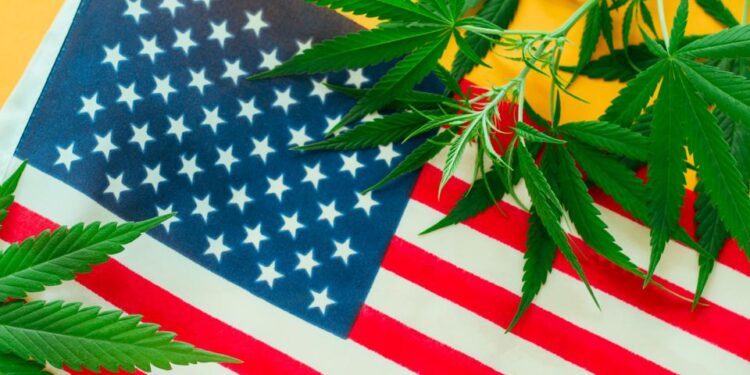The legalization of marijuana around the United States has led to a massive industry worth approximately $52 billion. Supporters of legalization have cheered many of the changes while detractors have sought ways to stop the loosening restrictions. Eleven states now allow recreational use of cannabis and an additional 33 have approved the drug for medicinal purposes. The differences in laws from one state to the next, as well as what changes are expected across the country have led to a lot of confusion and questions. Here are some of the details everyone should know.

Freedom of Use
Many advocates will continue to fight until they achieve full legalization in all 50 states, incorporating all forms of marijuana from medical to concentrates like rosin, which you can read about here. The fight has not been easy, as pro-cannabis groups are often smaller, grassroots organizations filled with determined volunteers. The advocates must compete against massive professional lobbyists who represent alcohol manufacturers, pharmaceutical companies, and politicians from anti-marijuana communities.
The law changes continue at a rapid pace, so what is true today often becomes quickly outdated. Currently, the District of Columbia and eleven states allow certified growers and sellers to supply customers with marijuana for recreational purposes. Those states are:
- Maine
- Vermont
- California
- Oregon
- Nevada
- Washington State
- Alaska
- Illinois
- Michigan
- Massachusetts
- Colorado
Medicinal Use Acceptance
Less controversial for many Americans has been the drive to allow people to use cannabis as an alternative medical treatment. The FDA has yet to approve cannabis. Epidiolex, a medication for the treatment of epilepsy, is the only cannabis-derived pharmaceutical available to date. Three synthetic cannabis prescription drugs also received approval. The drugs, Marinol, Syndros, and Cesamet are available only with a prescription from a licensed healthcare provider.
Doctors bypass the need for FDA approval by agreeing a patient has a condition with symptoms that cannabis may relieve. The doctor does not provide the patient with a prescription, but with the permission to receive a state-issued cannabis ID. The ID allows the patient to visit an approved dispensary and purchase the amount allowed within their state.
Approved usage varies, so anyone that wants an ID must review what their state believes are conditions justifying the approval. Some common ailments accepted by most states that allow medical usage includes epilepsy, the relief of side effects of chemotherapy, to reduce multiple sclerosis spasms, and for the relief of chronic pain.
Thirty-three states allow marijuana for medical use. Arizona, Connecticut, Georgia, and Indiana are some of these states. Some, like Indiana and Georgia, have restricted the use of CBD oil only.
Decriminalization of Cannabis
States that choose to decriminalize marijuana, an issue separate from legalizing it, typically allow people to avoid arrest, prison time and maintain a clean criminal record if they are caught with an amount normally kept for personal use. Officers in these states can decide to let the person go with a warning or ticket them as they would for a traffic violation.
Decriminalization has taken place in Delaware, Maryland, Mississippi, and many other states. In addition, some local governments have decriminalized cannabis within their city limits or within certain counties. Other states, like North Carolina and New York, still consider marijuana possession a crime but not one punishable with jail time.
Repairing Tarnished Reputations
Legal marijuana usage and decriminalization laws have led many to wonder what will happen to the people serving time for marijuana crimes and those with criminal records for previous arrests. Each state must manage the issue for themselves. In California, for example, attorneys can work to have felony convictions reduced to misdemeanors. The change would help many to experience reduced sentences, lower fines, and the potential to clear their record.
States with decriminalization laws have also begun to expunge or seal the records of past offenders if the crimes were for possession of cannabis amounts related to personal use only. Charges that included trafficking, gun charges, or other criminal violations do not receive the same treatment.
Some states continue to work to help those with prior charges. Alaska senator Tom Begich introduced SB8 in 2019. The bill would restrict access to the criminal records of anyone charged with only a marijuana crime that involved less than an ounce of the drug. The legislation is still on hold as Begich and others work to increase support for the bill.
Hesitant to Accept
Decriminalization and legalization remain a goal for pro-cannabis groups in several states. South Dakota, Nebraska, and Idaho do not allow any use of cannabis for any reason. South Carolina, Kansas, Mississippi, and Texas among others allow only the use of low-THC CBD oil. Alabama, once one of the most restrictive states did pass legislation in the spring of 2023 to allow medical marijuana usage.
Kansas legislators continue to fight for medical marijuana approval despite the failure of its passage in June of 2023. Idaho may have legislation on its November 2023 ballot after a federal judge ruled the complication of the COVID-19 pandemic made it impossible for the advocates to secure the petition signatures they needed. Tennessee has passed legislation that will make marijuana legal for medical use if it becomes legal under federal law.
Federal Charges Possible
Federal laws are a concern for everyone in the United States involved with medical or recreational cannabis. Marijuana maintains a Schedule I controlled substance classification under the Controlled Substances Act. Anyone that possesses, grows, sells, or otherwise distributes marijuana – even when done under the laws of their state – could still face federal charges.
State and local law enforcement have rarely involved federal authorities. Additionally, since 2014, the Department of Justice has not been allowed to use its funds to intervene in the establishment of state medical marijuana laws. The roadblock is due to the Rohrabacher-Farr or CJS amendment. The amendment only remains effective with approval from congress each year.
The complications from a federal charge of marijuana possession or sales could include an inability to buy a gun or the seizure of any money from marijuana sales once they are deposited into a federal bank. Cannabis users could also experience legal discrimination for housing rentals, employment opportunities, and more.
Marijuana legalization continues to become more accepted every year. Studies show that two-thirds of Americans approve of legalization. An astounding 91 percent believe it should stay available for medicinal use. Only 8 percent want it made illegal for all uses. The backing of most citizens makes it believable that any future changes in marijuana laws will favor those who advocate for its use.

